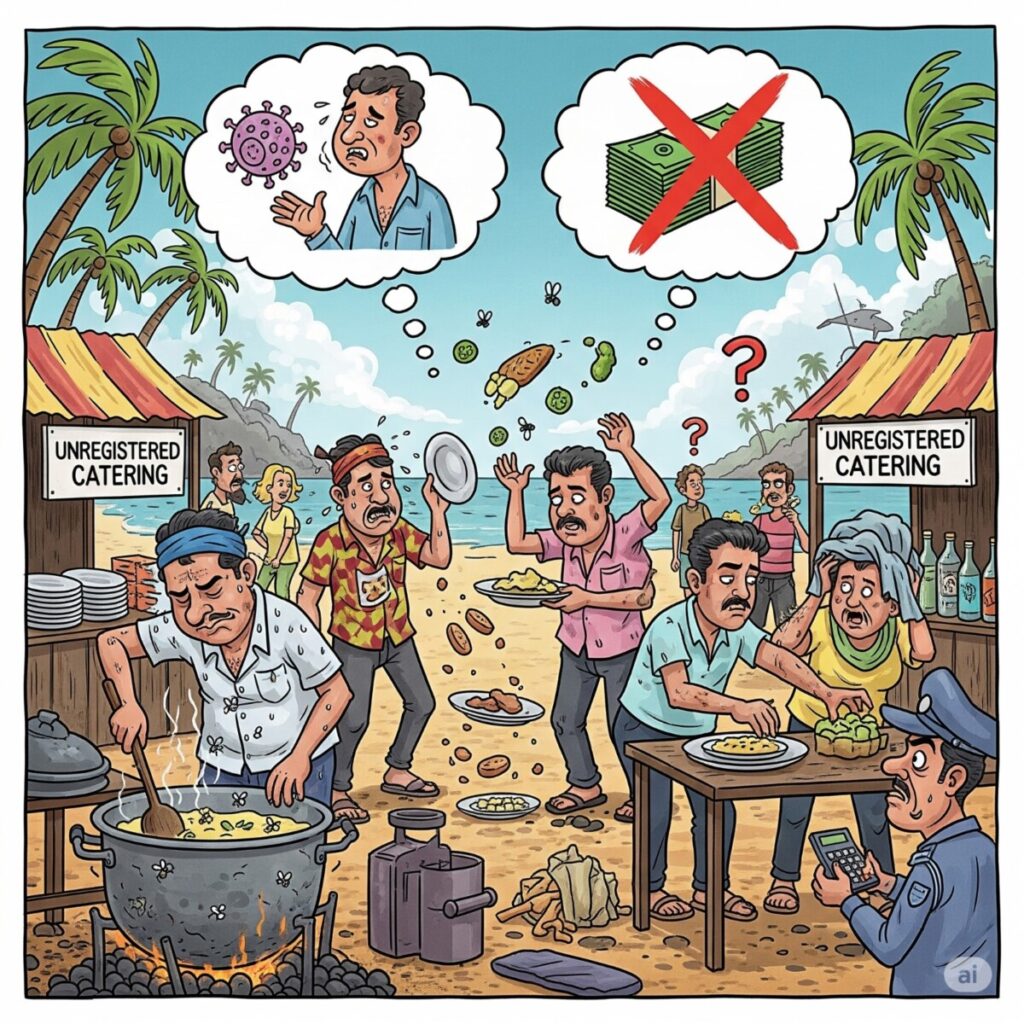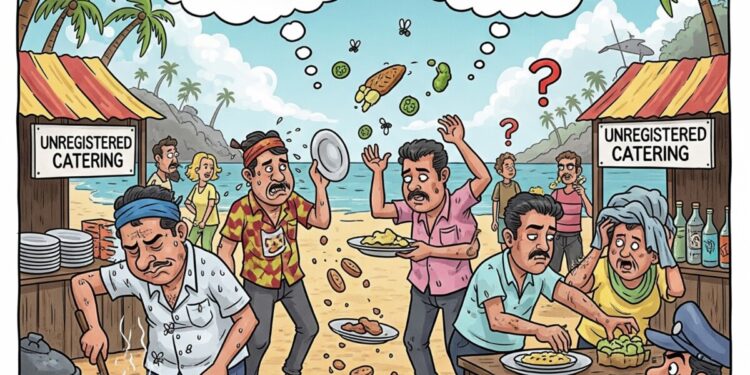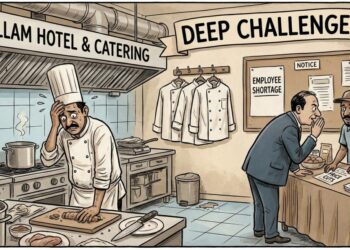– Khwaish Hingad

A state celebrated globally for its sun, sand, and vibrant culinary scene, a silent and fierce battle is being waged behind the scenes. While international brands flock to Goa, drawn by its booming hospitality market, the very foundation of its local catering industry is under threat. A sharp increase of unlicensed caterers operating outside the bounds of law and regulation is creating an economic crisis for genuine businesses and putting public health at risk.
The issue at hand is a two-fold problem impacting Goa’s catering industry. First, a large number of unlicensed caterers are operating without proper registration or licenses. By evading taxes and regulations, they can offer their services at significantly lower prices, creating unfair competition that severely undercuts legal businesses. Second, and more critically, these uncertified operations do not adhere to mandatory hygiene and sanitation standards, posing a serious public health risk to consumers. If a food safety issue occurs, these businesses are untraceable and cannot be held accountable, leaving consumers and the industry’s reputation vulnerable.
Recognizing the urgency of the problem, industry leaders have not only voiced their concerns but have also proactively proposed concrete solutions to the government.

Sudesh Bhingi, President of Goa Catering Association, reveals a startling statistic. He notes that “if there are nearly 2,000 unregistered caterers in Goa, only about 700 are licensed.” He acknowledges that some steps have been taken, but notes that progress is too slow. He stresses that when it comes to serving food, safety and hygiene are non-negotiable, and his association has already urged FDA and FSSAI officers to strictly check all operators and issue licenses only after verifying kitchen standards.

According to Mohammed Shaikh, Secretary of the Goa Catering Association, the numbers are even more stark, estimating that out of 2,000–3,000 caterers in the state, not more than 600–700 are registered. Shaikh points out that expenses he says, “We have to add ₹20–30 per plate to our costs, a margin that makes it impossible to compete on price with those who operate entirely in cash and without oversight. These unregistered operators walk away from responsibility if anything happens, while genuine businesses like ours are left to deal with the fallout.”

For Amit Amonkar, Owner of Amonkar Caterers, the issue is painfully clear. “After Covid, many unregistered catering businesses have sprung up without registration or licenses. The financial gap is staggering, with these unregistered businesses plating meals at ₹160–180, compared to our ₹250.” Amonkar expresses the collective frustration of his peers, stating, “We have all the documents, we pay our taxes, yet the government pays no attention.” He adds that this unfair competition is hurting the industry, and it is happening openly at the local level
Vaibhav Kanekar, Owner of Ambika Caterers, confirms that the issue has been raised with the Food and Drug Administration (FDA) and add that “the association is fully prepared to cooperate with the authorities. Although the government knows about it and is taking action, yet effective action has not been taken.”

Amidst these struggles, Girish Desai, Vice Secretary of the Caterer Association of Goa, offers a broader perspective. He notes that Goa is now considered a food capital of India, attracting major brands and hosting prestigious events like the National Restaurant Association of India (NRAI) AGM.
Players Proposing a Path Forward
The industry’s leaders have been proactive in proposing a solution that could fix a large part of the problem. As Vaibhav Kanekar suggests, the most impactful solution lies in mandating stricter venue policies, stating that if hall owners were required to check caterers’ licenses before bookings, a large part of the problem could be resolved. Mohammed Shaikh agrees, proposing that a simple step would be to mandate hall owners to allow only FSSAI-licensed caterers and maintain a register for accountability. This single change would automatically lead to improvements in hygiene and cleanliness.







